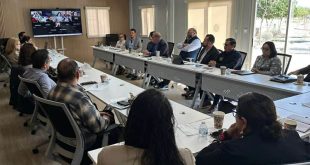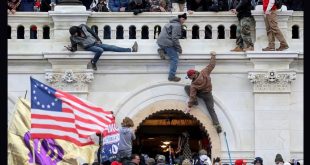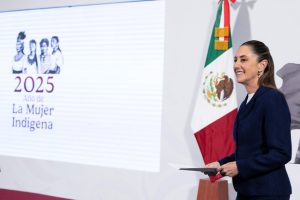The Mexican government announced on Monday that starting in October, it will initiate a comprehensive and inclusive series of consultations, forums, and roundtable discussions across the country to solicit public input on a proposed electoral reform.
The initiative is being led by the Presidential Commission for Electoral Reform, created to gather diverse perspectives from Mexican society to draft a reform proposal that addresses long-standing challenges within the country’s electoral system. The consultation process is expected to include participation from civil society groups, political parties, indigenous communities, academic and research institutions, legislators, and former members of the National Electoral Institute (INE), as well as citizens from all walks of life.
During the morning press conference, President Claudia Sheinbaum emphasized the government’s commitment to openness and broad participation, stating, “Everyone is invited to participate; no one’s right to participate will be restricted. We want to ensure that electoral fraud never returns to our country.”
The President highlighted that the electoral reform discussions will cover a wide range of critical issues currently affecting Mexico’s democratic processes. These include the financing and regulation of political parties, the possibility of incorporating electronic voting methods, the mechanisms of popular representation in both the Chamber of Deputies and the Senate, and proportional representation. Sheinbaum noted that “all these topics are open for discussion,” underscoring the administration’s goal of engaging with all stakeholders to develop a transparent and democratic framework.
Pablo Gómez Álvarez, head of the Presidential Commission, detailed the scope of the consultation process, which will run from October 2025 through January 2026. He explained that during this period, public hearings and debates will be organized nationwide, providing platforms for social organizations, political actors, experts, and citizens to share their views and proposals. These activities will be complemented by online participation through a digital platform that the government is currently developing to facilitate wider access.
The consultations will be held not only across Mexico’s major cities but also at the headquarters of the Ministry of the Interior (Secretaría de Gobernación), which is overseen by Secretary Rosa Icela Rodríguez Velázquez. This location will serve as a central venue to promote dialogue and disseminate information about the electoral reform process.
The Commission outlined fourteen key topics that will frame the discussions, including political freedoms and rights; representation of the people; the structure of the party system; financing and privileges of political parties; oversight of party and candidate income and expenditures during campaigns; effectiveness and integrity of the vote; regulation of political and electoral competition; freedom of expression and dissemination of opinions and information; restrictions on propaganda by public authorities and institutions; voting systems and vote counting both nationally and abroad; the administrative and judicial functions of electoral authorities; eligibility criteria for candidates; immunity provisions for elected officials; and popular consultations along with mechanisms for mandate revocation.
The Commission’s objective is to ensure that the reform process reflects the diverse views of Mexican society and to address concerns stemming from historical electoral irregularities. “The history of electoral frauds in our country is well documented,” Gómez Álvarez said, “and it is our responsibility to guarantee that such abuses do not happen again.”
The final proposals resulting from the consultations will be formally submitted to President Sheinbaum in January 2026. Following that, the government will decide on the next steps toward legislative reforms.
This move comes amid ongoing debates about the transparency and effectiveness of Mexico’s electoral institutions, as well as growing demands from citizens and political actors for improved mechanisms to safeguard electoral integrity.
The government has made a variety of resources available to the public, including photos, videos, audio recordings, official presentations, and transcripts, to encourage informed participation throughout the consultation period.



